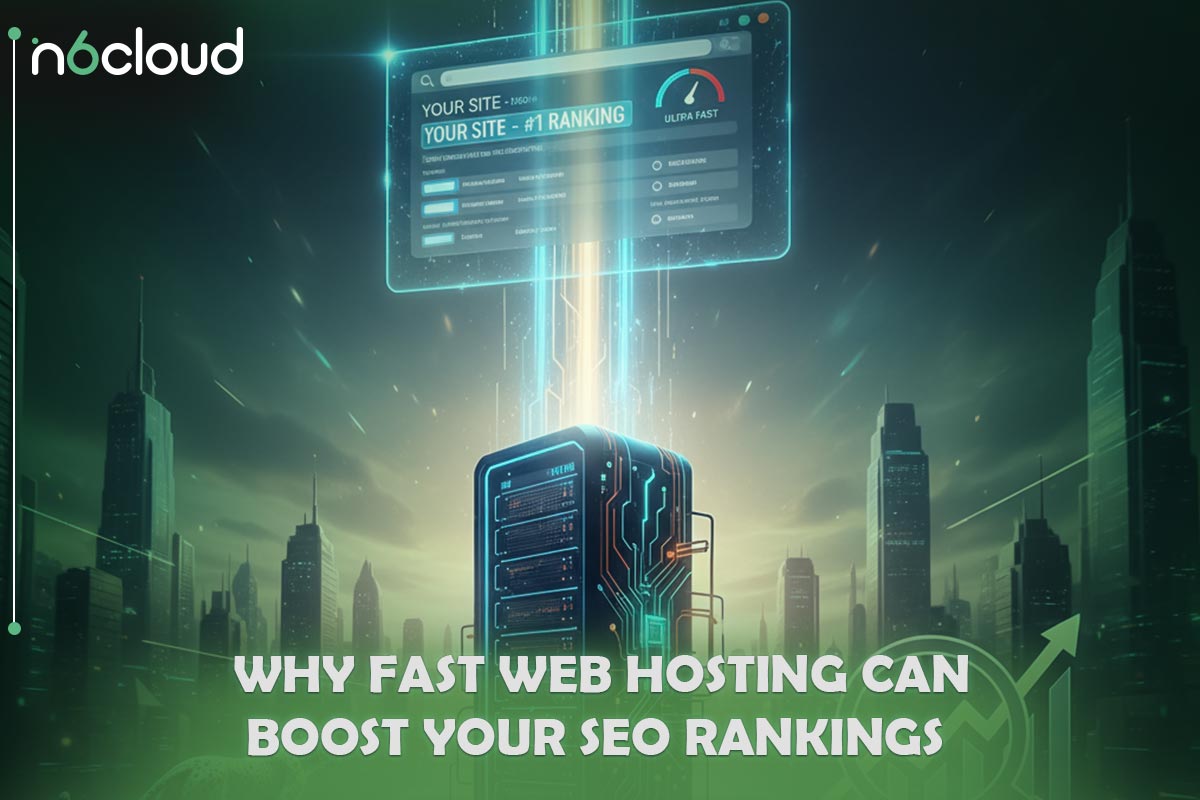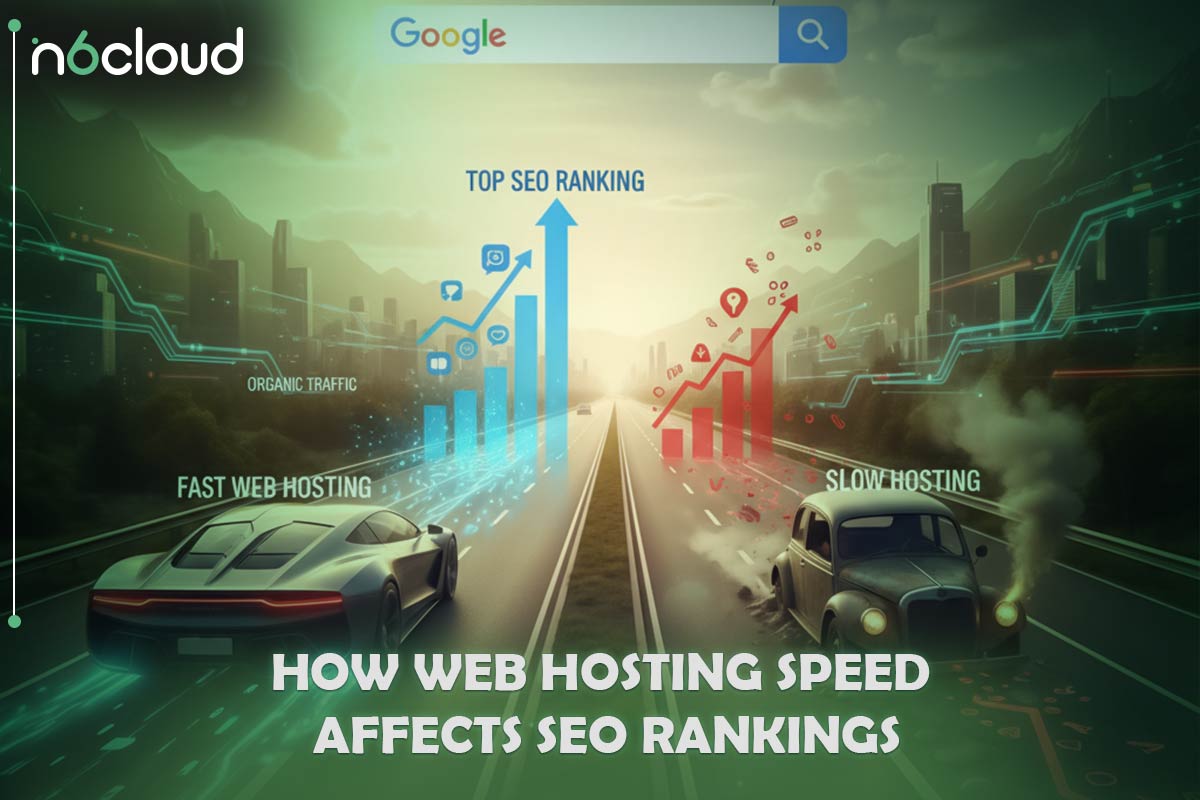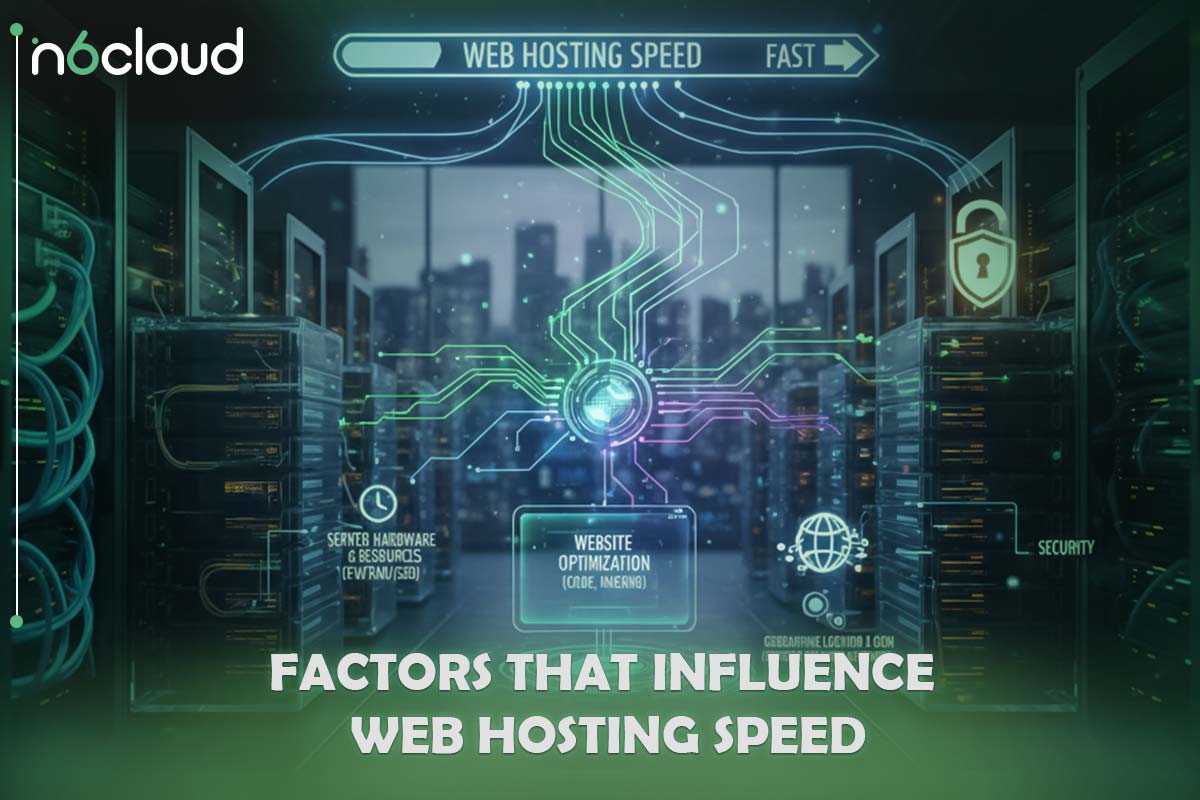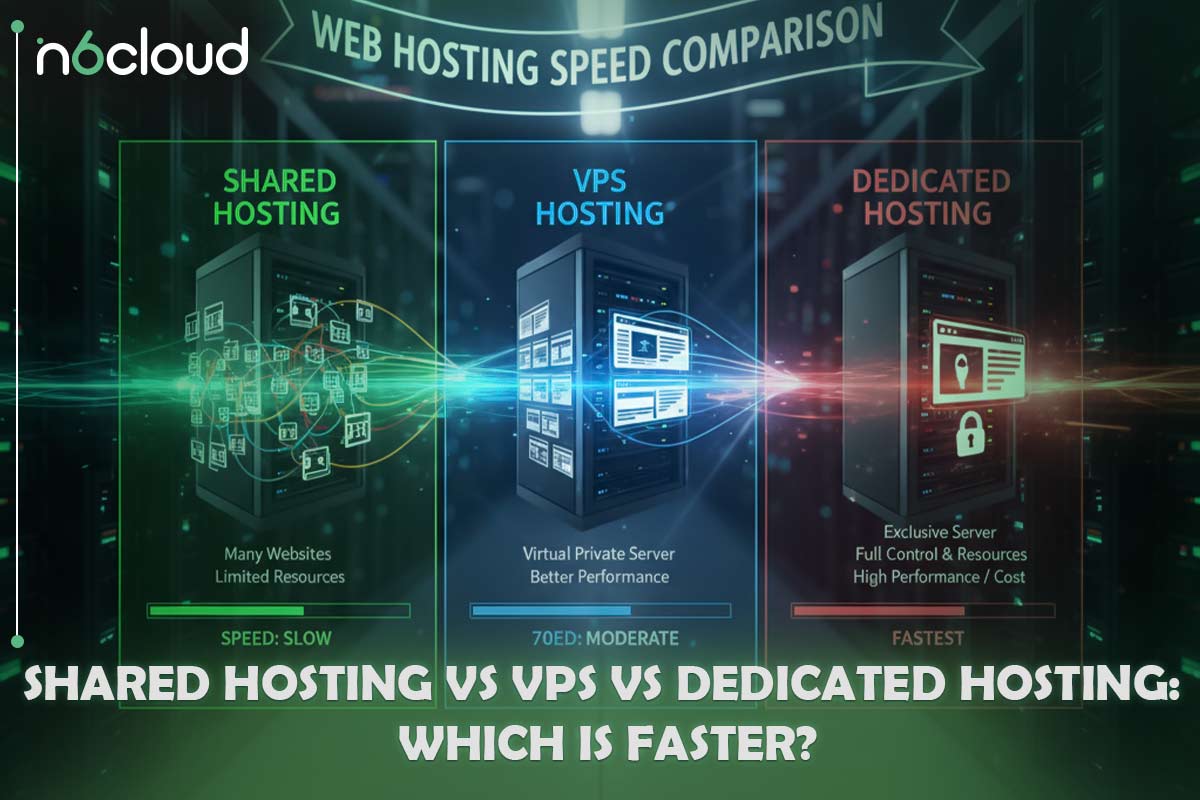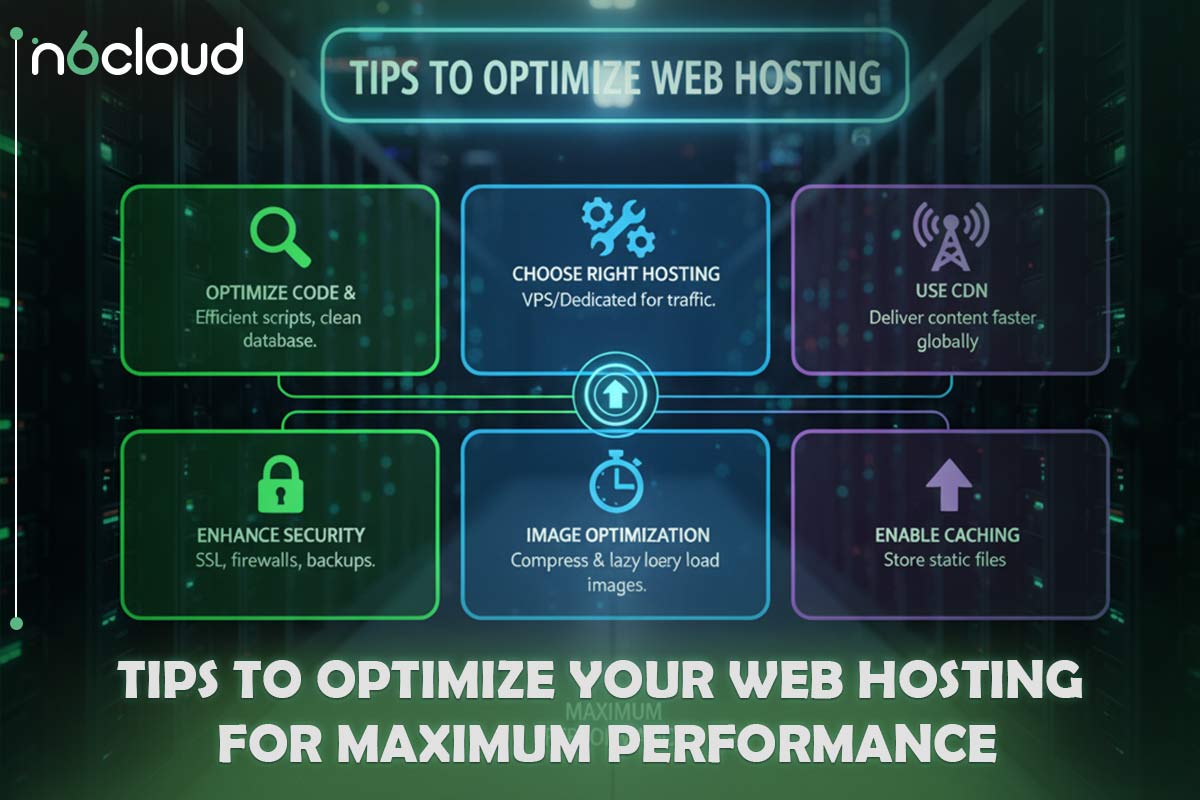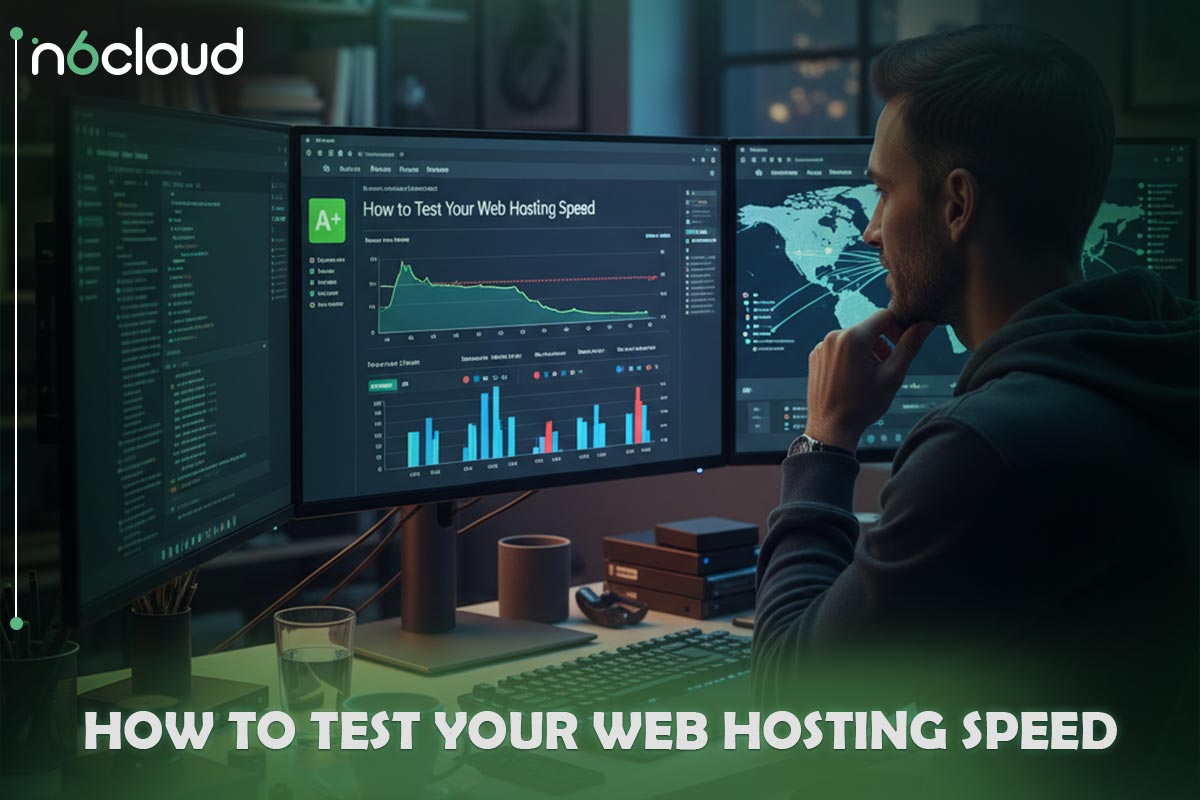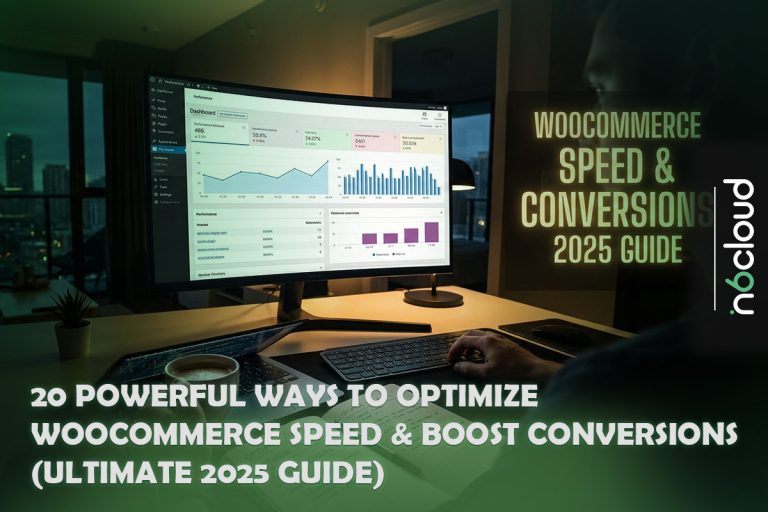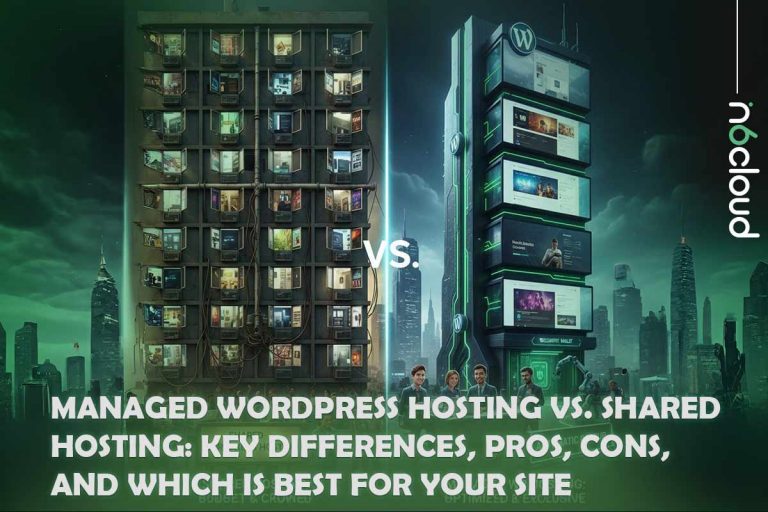Every second matters on the internet. Whether you manage a personal blog, an online store, or a business website, page speed significantly influences how visitors engage with your content. A slow-loading site not only frustrates users but can also drive them away completely. Research by Google shows that even a 1-second delay in page load time can reduce conversions by up to 20%.
But the consequences go beyond user experience. Website speed is now one of Google’s confirmed ranking factors, meaning faster sites are more likely to appear higher in search results. A sluggish website can undermine your SEO efforts, regardless of the strength of your content or backlinks.
The key to unlocking better performance often lies in your web hosting choice. The right hosting solution ensures that your site loads quickly, handles traffic efficiently, and remains stable under pressure. From shared hosting to VPS hosting, Dedicated hosting, Cloud hosting, and Managed hosting, each type offers different performance capabilities, and the speed differences between them can have a direct impact on your visibility in search engines.
In this article, we’ll explore how web hosting speed influences SEO rankings, what factors make hosting fast, and how to choose a provider that helps your website perform at its best.
What is Fast Web Hosting?
Fast web hosting is more than just a server with good hardware. It is the foundation that determines how quickly your website’s content is delivered to users. A fast host ensures your pages load smoothly, handle high traffic efficiently, and provide a seamless experience to every visitor.
When we talk about “fast hosting,” we refer to a mix of advanced technology, optimized configurations, and reliable infrastructure. Speed depends on several factors: the type of storage (NVMe or SSD), the quality of the network, the number of CPU cores and available RAM, and how well the hosting platform manages caching and resource allocation.
Different hosting types offer various levels of performance. Shared hosting is an affordable option where multiple websites share the same server resources. While ideal for small projects, it may slow down during traffic spikes. VPS hosting, on the other hand, provides dedicated resources and isolated environments, making it significantly faster and more stable. Businesses with high traffic or demanding applications often choose dedicated hosting for maximum control and performance, while Cloud hosting offers flexibility and scalability with distributed infrastructure.
For users who prefer simplicity without sacrificing speed, Managed hosting combines technical optimization and expert maintenance. It’s perfect for those who want fast, secure performance without managing configurations themselves.
Providers like N6 Cloud focus on delivering optimized, high-performance hosting environments that leverage cutting-edge technology such as NVMe storage, advanced caching, and secure Canadian data centers. Whether you’re hosting a personal website or a growing e-commerce business, the proper hosting setup can make all the difference in how fast your site performs.
How Web Hosting Speed Affects SEO Rankings
Search engine optimization is no longer just about keywords and backlinks. In 2025, Google’s algorithms will heavily reward websites that deliver fast, seamless user experiences. One of the most important ranking signals behind that experience is page speed, and your web hosting provider plays a crucial role in achieving it.
When a user clicks on your website, their browser requests files from your hosting server. If your server is slow to respond, your pages take longer to load. Search engines like Google measure this delay through metrics such as Core Web Vitals, which include:
- Largest Contentful Paint (LCP): How quickly the main content appears.
- First Input Delay (FID): How responsive the site is to user interactions.
- Cumulative Layout Shift (CLS): How stable the layout is as it loads.
A fast VPS hosting, Cloud hosting, or Dedicated hosting plan helps you achieve better scores in these areas. Faster servers improve crawl efficiency, meaning search engines can scan more of your site in less time. This directly impacts how often your pages are indexed and updated in search results.
Beyond technical rankings, hosting speed affects how visitors behave on your site. Slow websites increase bounce rates and reduce engagement, both of which signal negatively to search engines. Studies show that pages that load in under 2 seconds have 50% lower bounce rates than those that take longer.
Choosing a high-performance hosting plan ensures your website stays fast even during peak traffic. For instance, upgrading from an entry-level shared hosting plan to a VPS hosting setup can significantly reduce load times by up to 60%. When speed improves, users stay longer, interact more, and convert at higher rates, all of which contribute to more substantial SEO rankings over time.
Factors That Influence Web Hosting Speed
Not all hosting environments are created equal when it comes to speed. The performance of your website depends on a combination of hardware, software, and network factors. Understanding these elements can help you choose the right hosting solution for your goals.
1. Server Hardware
The foundation of fast web hosting starts with powerful hardware. Servers equipped with modern CPUs, generous RAM, and NVMe SSD storage deliver significantly better disk I/O and data transfer speeds than older HDD-based systems. NVMe technology, in particular, can improve load times by reducing data access latency by up to 90%.
2. Data Center Location
The proximity of your hosting server to your target audience plays a crucial role in how quickly your website loads for them. This is due to latency, which refers to the time it takes for data to travel between a user’s browser and your server. By selecting a provider with Canadian-based infrastructure, such as N6 Cloud, you can ensure faster response times for businesses and audiences in Canada.
3. Bandwidth and Network Quality
Your hosting provider’s network capacity and connection speed play a crucial role in website performance. A high-bandwidth, low-latency network can handle more simultaneous requests without slowing down. This is especially important for busy e-commerce sites and applications running on Cloud hosting or VPS hosting environments.
4. Software Optimization
Modern hosting platforms often use web servers like LiteSpeed or Nginx, which handle connections more efficiently than traditional Apache setups. Built-in caching layers, HTTP/3 support, and CDN integration can further reduce load times and improve overall website responsiveness. For many users, Managed hosting includes these optimizations by default, simplifying the process of maintaining peak performance.
5. Resource Allocation and Isolation
On Shared hosting, multiple websites share the same resources, which can slow performance when one site experiences a traffic spike. VPS hosting or Dedicated hosting, on the other hand, isolates resources for each user, ensuring consistent speed regardless of other tenants on the server. For growing businesses, upgrading to an isolated environment is often the single most effective way to boost performance.
6. Server Maintenance and Uptime
Even the fastest hardware won’t matter if your server experiences downtime or frequent interruptions. A reliable hosting provider should guarantee at least 99.9% uptime and maintain servers with regular hardware checks and performance monitoring.
By understanding these factors, you can make a more informed choice between Shared hosting, VPS hosting, Dedicated hosting, Cloud hosting, and Managed hosting options. A well-optimized hosting environment not only ensures a faster website but also lays the groundwork for better SEO visibility and long-term stability.
Shared Hosting vs VPS vs Dedicated Hosting: Which Is Faster?
When it comes to speed, not all hosting types perform equally. The structure of your hosting plan determines how many resources your website can use and how much control you have over performance optimizations. Understanding the difference between Shared hosting, VPS hosting, and Dedicated hosting is key to choosing the right balance of cost, control, and speed.
Shared Hosting – Budget-Friendly but Limited
Shared hosting is the most affordable option, perfect for small websites, blogs, or startups. However, since multiple websites share the same server resources, speed can fluctuate when other sites experience heavy traffic. Shared servers often have limits on CPU usage, memory, and bandwidth, which can impact your site’s responsiveness under load. While optimized Shared hosting plans from providers like N6 Cloud use caching and SSD storage to improve performance, they still can’t match the speed or stability of isolated environments.
VPS Hosting – The Mid-Range Powerhouse
VPS hosting (Virtual Private Server) offers a significant performance boost by giving you dedicated resources within a virtualized environment. Your site operates independently, unaffected by neighbouring websites. This isolation allows you to configure software, caching, and security settings for maximum speed. VPS plans are ideal for growing businesses and online stores that need reliable uptime and faster load times without the cost of a full dedicated server.
Dedicated Hosting – Maximum Control and Speed
For high-traffic websites or applications that demand top-tier performance, Dedicated hosting provides an entire physical server exclusively for your use. This means full resource allocation, faster data processing, and complete customization. It’s the fastest and most powerful hosting type, but also the most expensive. Dedicated hosting is typically chosen by enterprises or large-scale projects where every millisecond matters.
Cloud Hosting – Flexible and Scalable Performance
Cloud hosting bridges the gap between VPS and Dedicated solutions. It distributes resources across multiple connected servers, allowing your website to scale automatically as traffic grows. This makes it one of the most efficient and reliable hosting models for businesses that need both speed and flexibility.
Finding the Right Balance
Each hosting type has its strengths. Shared hosting is best for affordability; VPS hosting balances speed and value; Cloud hosting offers scalability; and Dedicated hosting delivers unmatched performance. The best choice depends on your traffic levels, growth plans, and technical needs. Regardless of your selection, partnering with a reliable provider like N6 Cloud ensures a solid performance foundation, enabling you to rank higher and load faster.
Tips to Optimize Your Web Hosting for Maximum Performance
Even with the fastest VPS hosting, Cloud hosting, or Dedicated hosting, performance depends on how well your server and website are configured. The good news is that with a few smart optimizations, you can significantly improve load times, boost SEO, and deliver a better user experience.
1. Use a Content Delivery Network (CDN)
A CDN stores copies of your website’s files on multiple servers around the world. When a visitor accesses your site, the CDN serves content from the nearest location, reducing latency and speeding up load times. This is especially useful for global audiences or media-heavy websites.
2. Enable Caching
Caching temporarily stores frequently accessed files so they can be served faster without repeatedly fetching data from the server. Platforms like LiteSpeed Cache, Redis, or Varnish can drastically reduce load times and improve responsiveness across all hosting types, from Shared hosting to Dedicated hosting.
3. Optimize Images and Media
Large images and videos often cause slowdowns. Compressing files using tools like TinyPNG or enabling WebP image formats helps your site load faster without sacrificing quality. Pairing this with server-level compression (like Gzip or Brotli) delivers a noticeable performance boost.
4. Keep Software and Plugins Updated
Outdated software can lead to security vulnerabilities and inefficient performance. Regularly updating your CMS, themes, and plugins ensures compatibility with the latest hosting technologies and performance standards. This is especially true for websites hosted on Managed hosting, where updates are often handled automatically.
5. Choose a Data Center Close to Your Audience
Server location plays a significant role in speed. If your primary audience is in Canada, choosing a provider like N6 Cloud with Canadian data centers ensures minimal latency and optimal connection times for local visitors.
6. Scale Resources When Needed
As your website grows, your hosting needs change. If you notice slower load times or resource limits being reached, consider upgrading from Shared hosting to VPS or Cloud hosting. Scalable environments allow you to add more CPU, RAM, or storage instantly without downtime.
By combining these optimizations with a reliable hosting provider, you can unlock the full potential of your website’s speed and stability. Every millisecond you save not only improves user satisfaction but also strengthens your SEO performance. A win-win for both visitors and search engines.
Common Mistakes That Slow Down Your Website
Many website owners focus on design or content, but they often overlook performance until it becomes a problem. Even with quality hosting, minor configuration errors or overlooked details can significantly reduce your site’s speed and hurt your SEO rankings. Here are some of the most common mistakes to avoid.
1. Overloading Your Site with Plugins and Scripts
Especially on WordPress, excessive plugins or poorly coded extensions can add unnecessary HTTP requests, increasing page load times. Only install essential plugins and periodically audit your website to remove anything that slows it down.
2. Ignoring Server-Side Caching and Compression
Without caching, every page load requires your server to rebuild content from scratch. Similarly, not enabling Gzip or Brotli compression means larger files take longer to transfer. Both can add precious seconds to load times, even on fast VPS hosting or Cloud hosting plans.
3. Hosting Too Many Websites on a Small Plan
Overloading your hosting account is one of the quickest ways to slow down your entire system. On Shared hosting, multiple websites share the same resources, and too many sites on a single plan can cause bottlenecks. If your traffic is growing, upgrading to VPS hosting or Dedicated hosting ensures consistent performance.
4. Using Outdated Software or PHP Versions
Running outdated server software or old PHP versions can dramatically affect speed and security. Keeping everything up to date ensures compatibility with modern browsers, better caching, and improved performance metrics.
5. Neglecting Image and Media Optimization
High-resolution images and uncompressed videos are among the top causes of slow websites. Always resize, compress, and use next-gen formats like WebP. Hosting them on a CDN can also reduce the load on your origin server.
6. Skipping Monitoring and Performance Testing
Without regular performance testing, you won’t know what’s slowing your site down until it affects your visitors. Simple monitoring tools can help you identify speed issues, server response delays, or uptime problems before they harm SEO rankings.
Avoiding these mistakes is just as important as selecting the right hosting type. A fast and well-optimized Managed hosting or VPS hosting plan from a trusted provider like N6 Cloud ensures your website runs efficiently while giving you the control to prevent these common pitfalls.
How to Test Your Web Hosting Speed
Testing your website’s speed is one of the easiest ways to measure hosting performance. It’s essential if you want to maintain strong SEO rankings. A fast website provides a better user experience, while a slow one signals to search engines that something might be wrong. Fortunately, several reliable tools can help you monitor and evaluate your hosting speed.
1. Google PageSpeed Insights
This free tool from Google measures your website’s real-world performance on both desktop and mobile. It provides a detailed breakdown of Core Web Vitals such as Largest Contentful Paint (LCP) and First Input Delay (FID), giving you actionable suggestions for improvement.
2. GTmetrix
GTmetrix is one of the most popular tools for testing site speed. It analyzes load time, total page size, and the number of requests made to your server. It also provides waterfall charts that show exactly which files are slowing your site down.
3. Pingdom Website Speed Test
Pingdom offers a simple way to test from multiple global locations. This helps identify if your hosting server’s physical location affects load time for different users. Something especially relevant if you’re on Shared hosting or VPS hosting without a CDN.
4. WebPageTest
WebPageTest provides in-depth technical insights, including Time to First Byte (TTFB) and connection speed. It’s ideal for developers and businesses who want to monitor backend performance or test how caching and compression settings affect speed.
5. Hosting Provider Benchmarks
Many hosting providers, including N6 Cloud, allow customers to monitor CPU, memory, and bandwidth usage directly from their control panels. Keeping an eye on these stats helps you spot when it’s time to upgrade from Shared hosting to VPS hosting or Cloud hosting.
When running these tests, always check results from different devices and locations. A single test can’t show the full picture, but consistent patterns will reveal whether your current hosting setup supports your performance and SEO goals. If results show long response times or unstable speeds, it may be time to consider a faster, more scalable hosting solution.
Conclusion: Choose Fast Web Hosting for SEO Success
In today’s competitive digital world, a fast website is no longer a luxury; It’s a necessity. Search engines reward websites that deliver quick, stable, and responsive experiences. Even small improvements in hosting speed can lead to better rankings, higher engagement, and stronger conversions.
Your hosting provider plays a major role in achieving that speed. From entry-level Shared hosting to advanced VPS hosting, Cloud hosting, Managed hosting, and Dedicated hosting, each option offers unique advantages for performance and scalability. The right choice depends on your site’s size, audience, and technical needs, but one fact remains constant: faster hosting equals better SEO results.
If you’re ready to give your website the speed and stability it deserves, explore the optimized hosting solutions offered by N6 Cloud. With NVMe-powered infrastructure, secure Canadian data centers, and flexible upgrade paths, N6 Cloud is built to help your website load faster, rank higher, and grow stronger.
Fast web hosting doesn’t just improve how your website performs. It shapes how your visitors and search engines perceive your business. Choose wisely, invest in speed, and watch your SEO success take off.
